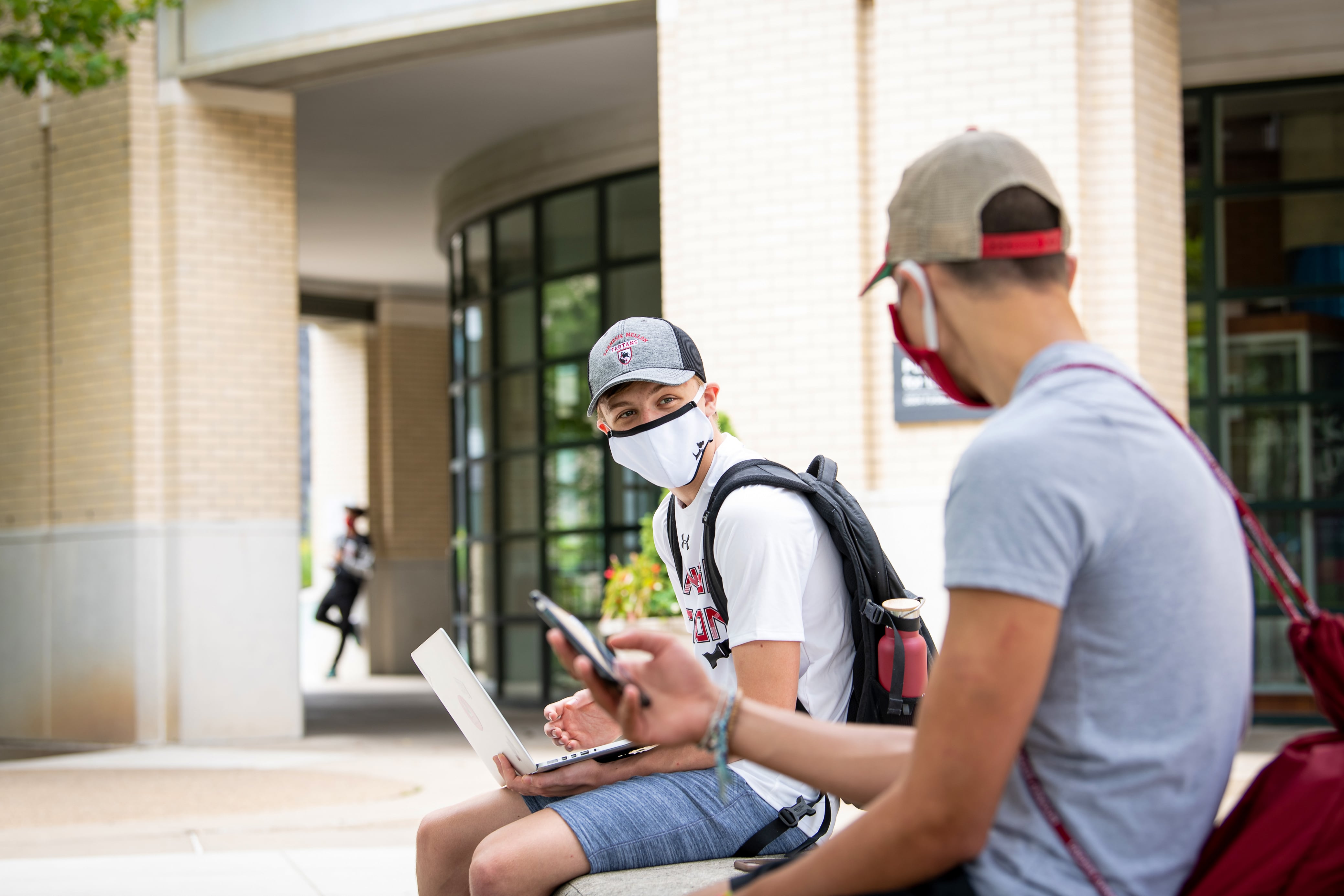
Important Relationships for First-Year Students
At Carnegie Mellon, we believe that investing in meaningful relationships is invaluable for new students and contributes to a truly transformative university experience. There are several key relationships that we hope students develop early in their college experience.
Peers
First-year students have met other new students during Orientation, in their classes and through student activities. Some new college students might be out of practice of meeting new people or may not feel totally comfortable connecting with other students remotely. We encourage all new students to push outside of their comfort zones, introduce themselves to new people in classes and during remote events, and take that first step to building connections. Even before the pandemic, we found that some students needed several months or more to build their networks and niche(s) on campus. During these times of physical distancing, building a network of friends and acquaintances is a great first step to feeling connected to CMU and each other.
Housefellow
Housefellows are experienced professional staff members who engage with new students all year long. First-year students living off campus have a remote Housefellow for fall semester, and students living on campus have a Housefellow associated with their on-campus residence hall. Housefellows cultivate meaningful, one-to-one relationships with the students in their communities. The housefellow is a primary point of contact for first semester students and an advocate for any extracurricular needs they may have. If you have a concern or worry about your student’s CMU experience, feel free to get in touch directly with their housefellow.
Advisor
The academic advisor is often compared to a high school guidance counselor in the academic and personal support that they offer to students. Academic advisors are professional staff and faculty members who are a primary source of support for first-year students. Advisors can help students determine where their strengths and interests align, develop suitable educational plans, evaluate progress towards established goals and develop problem-solving and decision-making skills. If your student has an academic-related question and doesn’t know where to get started, encourage them to consult their academic advisor.
Faculty
If your student has a question about class material or is struggling in a course, the first step is to talk to the course professor. Faculty members offer office hours to meet with students, where the professor can answer questions and refer to resources for additional support. At the first meeting of each class, students receive a course syllabus that outlines the class objectives, resources and deadlines. Encourage your student to refer to the syllabus for details about their professor’s office hours and the best way to schedule a meeting.
Resident Assistant
First-year students living on campus for the fall or spring semester will have a Resident Assistant (RA) assigned to their floor in the residence halls. This upper class student serves as a resource, mentor and advisor to new students. They are there to help facilitate community in the residence halls.